Roger Bacon Quotes
- Philosopher and Franciscan friar
- England
- 1214
Roger Bacon (1214-1294) was an English philosopher and scientist known for his contributions to the fields of mathematics, optics, and alchemy. He is often referred to as the “Father of Experimental Science” for his emphasis on observation and experimentation in scientific inquiry. Bacon…Read More
Roger Bacon (1214-1294) was an English philosopher and scientist known for his contributions to the fields of mathematics, optics, and alchemy. He is often referred to as the “Father of Experimental Science” for his emphasis on observation and experimentation in scientific inquiry. Bacon was also a Franciscan friar and his religious beliefs heavily influenced his work.One of Bacon’s most notable works is his Opus Majus, a comprehensive treatise on natural philosophy, mathematics, and optics. In this work, he argued for the importance of empirical evidence and the use of mathematics in scientific research. He also wrote extensively on alchemy, believing that it could lead to the discovery of the philosopher’s stone, a substance that could turn base metals into gold.Bacon’s ideas were ahead of his time and he faced criticism from the Church for his unconventional views. He was even imprisoned for a time due to his controversial writings. However, his work continued to influence later scientists and philosophers, including Francis Bacon and Isaac Newton.Overall, Roger Bacon’s contributions to the fields of science and philosophy have had a lasting impact on our understanding of the natural world and the importance of empirical evidence in scientific inquiry.Read Less
Roger Bacon (1214-1294) was an English philosopher and scientist known for his contributions to the fields of mathematics, optics, and alchemy. He is often referred to as the “Father of Experimental Science” for his emphasis on observation and experimentation in scientific inquiry. Bacon was also a Franciscan friar and his religious beliefs heavily influenced his work.One of Bacon’s most notable works is his Opus Majus, a comprehensive treatise on natural philosophy, mathematics, and optics. In this work, he argued for the importance of empirical evidence and the use of mathematics in scientific research. He also wrote extensively on alchemy, believing that it could lead to the discovery of the philosopher’s stone, a substance that could turn base metals into gold.Bacon’s ideas were ahead of his time and he faced criticism from the Church for his unconventional views. He was even imprisoned for a time due to his controversial writings. However, his work continued to influence later scientists and philosophers, including Francis Bacon and Isaac Newton.Overall, Roger Bacon’s contributions to the fields of science and philosophy have had a lasting impact on our understanding of the natural world and the importance of empirical evidence in scientific inquiry.
8 Top Roger Bacon Quotes
Roger Bacon Career Highlights
- Bacon was born in Ilchester, Somerset, England in 1214. He received his early education at the Oxford University and later joined the Franciscan Order.
- In 1247, he moved to Paris to study theology and philosophy. During this time, he became interested in the works of Aristotle and other ancient Greek philosophers.
- Bacon’s most significant work, “Opus Majus” (The Major Work), was completed in 1267. It was a comprehensive treatise on mathematics, optics, and experimental science.
- In 1278, Bacon was imprisoned for his unorthodox views and writings. He was released after 14 years, and during this time, he continued to write and conduct experiments.
- In 1292, Bacon returned to Oxford and continued to teach and write until his death in 1294.
Key Contributions by Roger Bacon
- Bacon’s most significant contribution was his emphasis on the importance of empirical observation and experimentation in the pursuit of knowledge. He believed that knowledge should be based on evidence rather than authority.
- He also made significant contributions to the fields of mathematics and optics. He introduced the use of algebra in geometry and developed a theory of refraction that laid the foundation for modern optics.
- Bacon’s work on alchemy and chemistry also had a significant impact. He was one of the first to use experimental methods in alchemy and is credited with the discovery of gunpowder.
- He also wrote extensively on the importance of language and communication, advocating for the use of a universal language to facilitate understanding between different cultures.
- Bacon’s emphasis on empirical observation and experimentation was revolutionary for his time. He challenged the traditional reliance on authority and paved the way for the scientific method.
- He was also one of the first to advocate for the use of mathematics in scientific inquiry, which has become a fundamental aspect of modern science.
- Bacon’s work was ahead of its time and laid the foundation for many scientific advancements that would come centuries later. He is often referred to as the “Father of Experimental Science.”
What Sets Him Apart:
Takeaways
- Bacon’s emphasis on empirical observation and experimentation is still relevant today. His approach to knowledge has shaped the way we understand and study the world.
- His work serves as a reminder that progress and innovation often come from challenging traditional beliefs and thinking outside the box.
- Bacon’s contributions to various fields of science and philosophy have had a lasting impact and continue to inspire new discoveries and advancements.



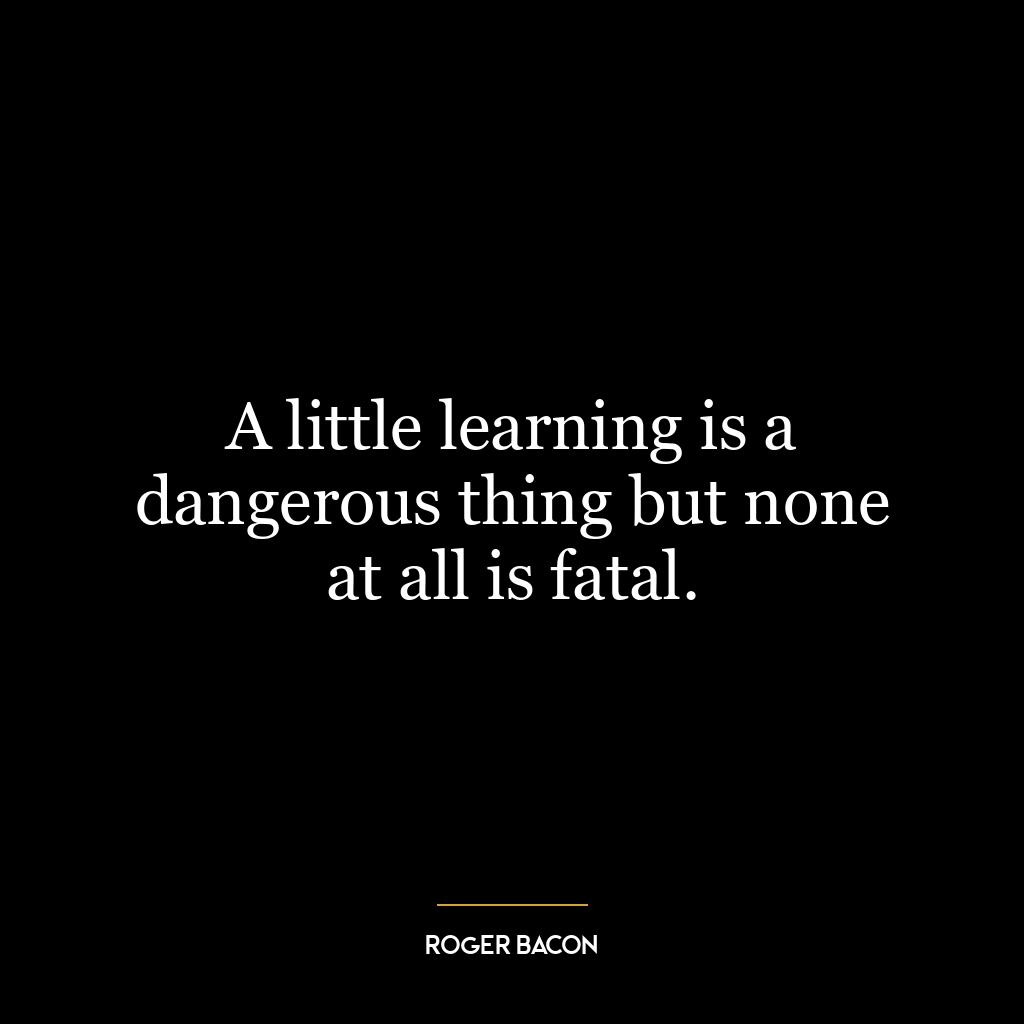
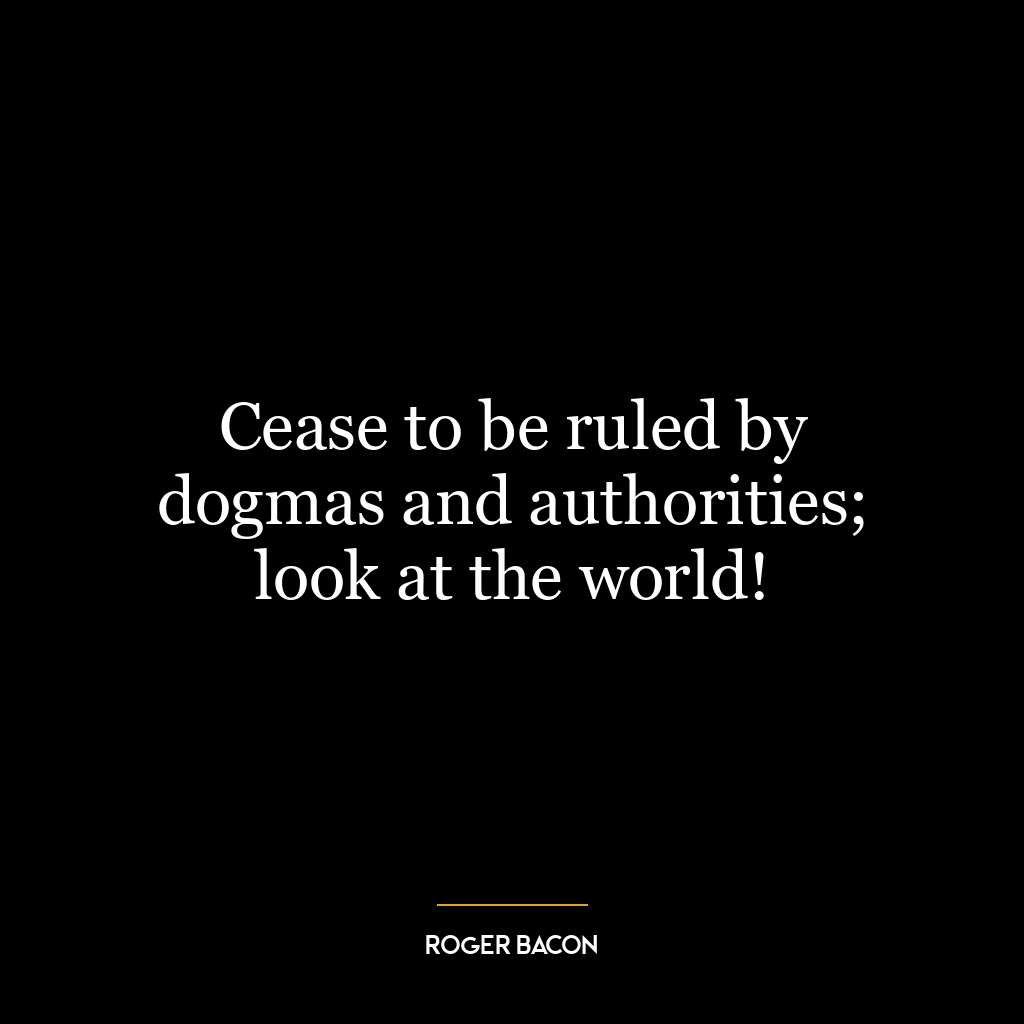
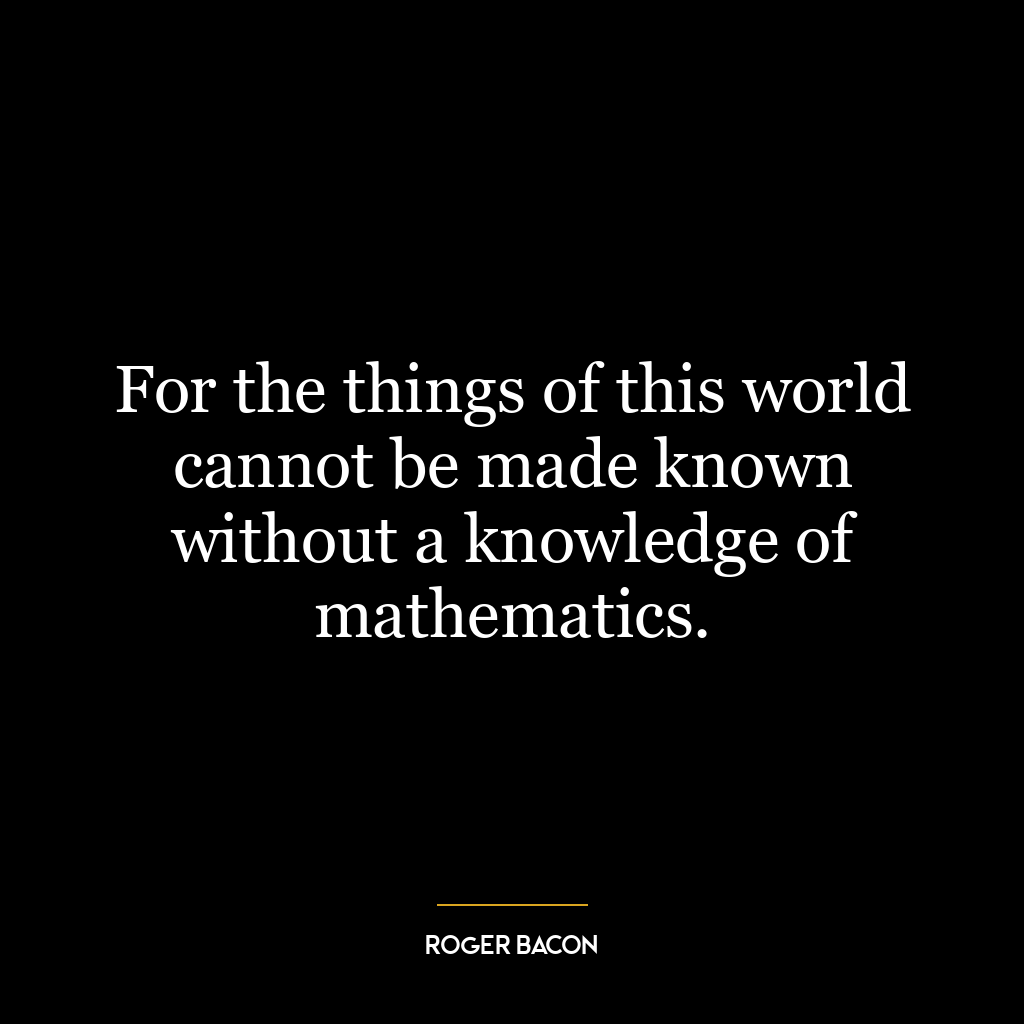
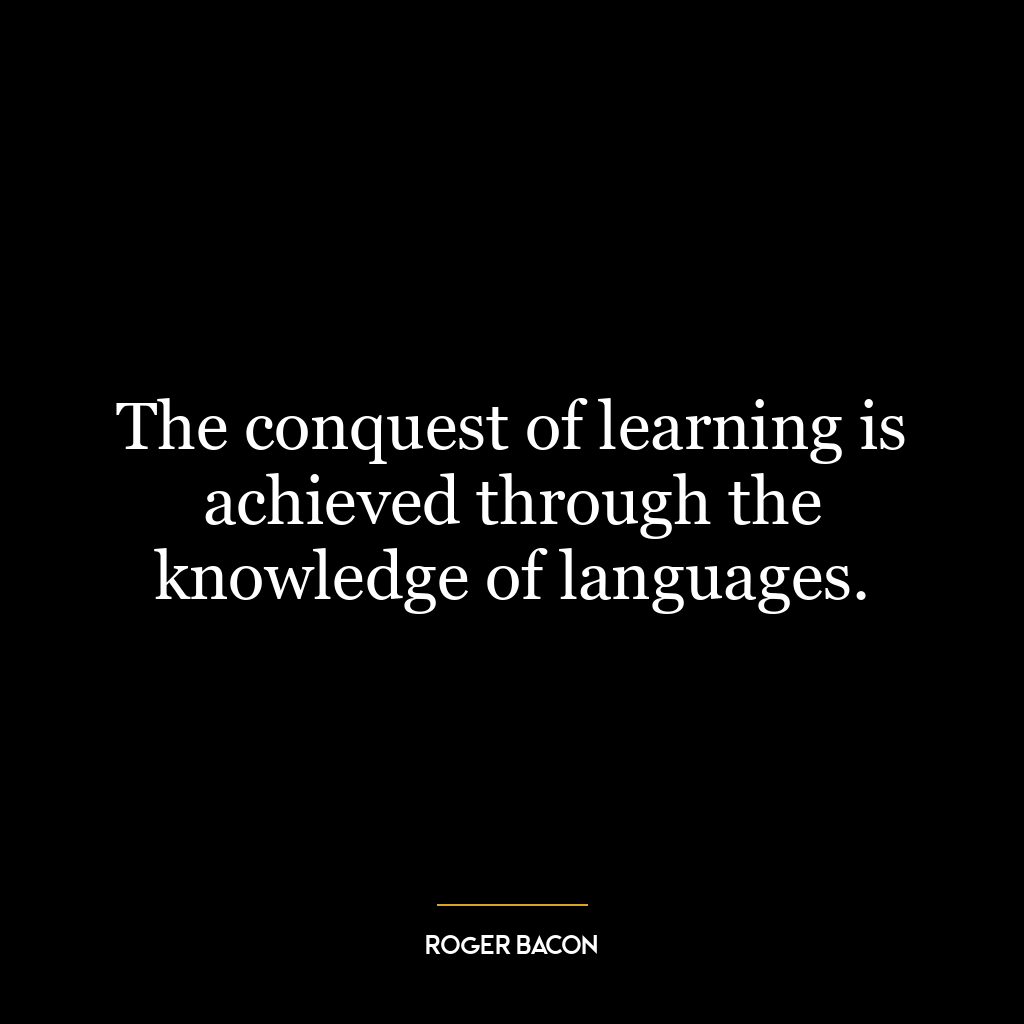

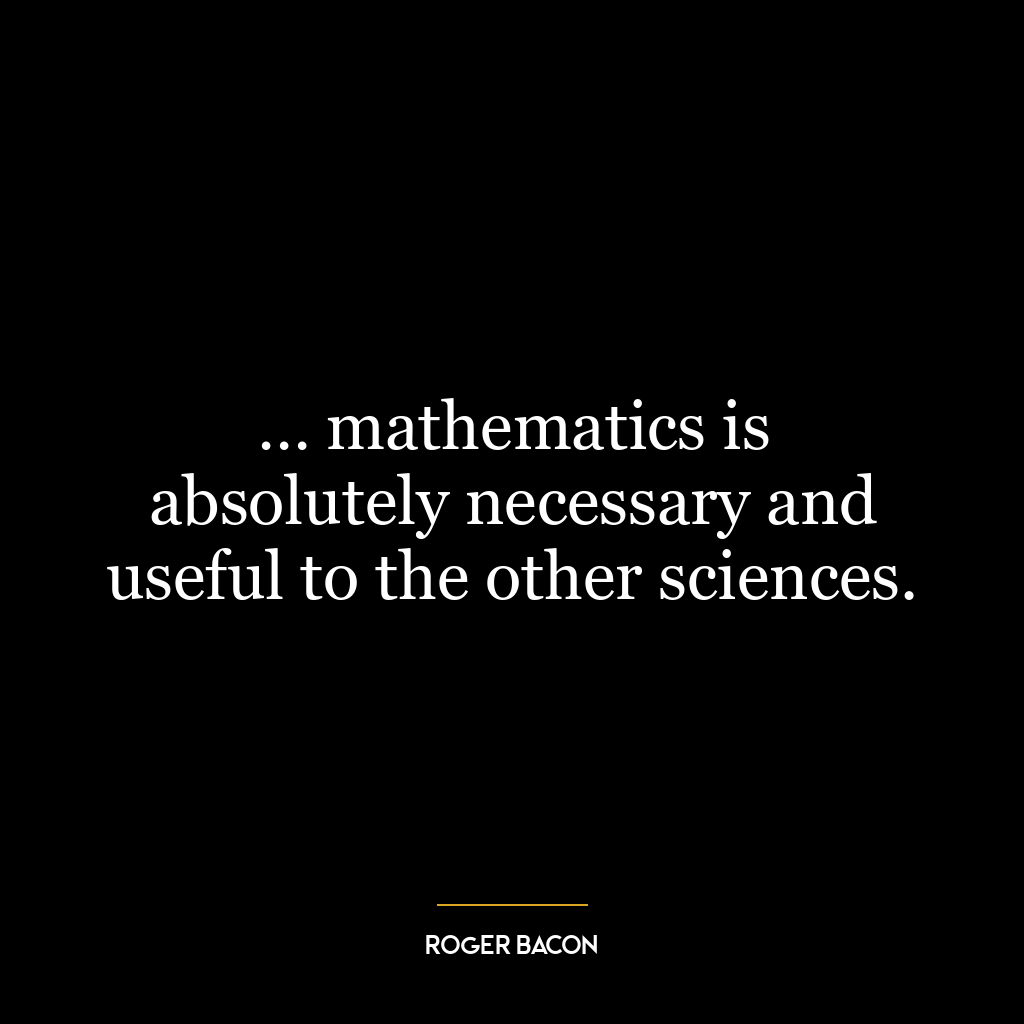
![All science requires mathematics.
[Editors’ summary of Bacon’s idea, not Bacon’s wording.]](https://quotes.guide/wp-content/uploads/roger-bacon/roger-bacon-423977.png)

